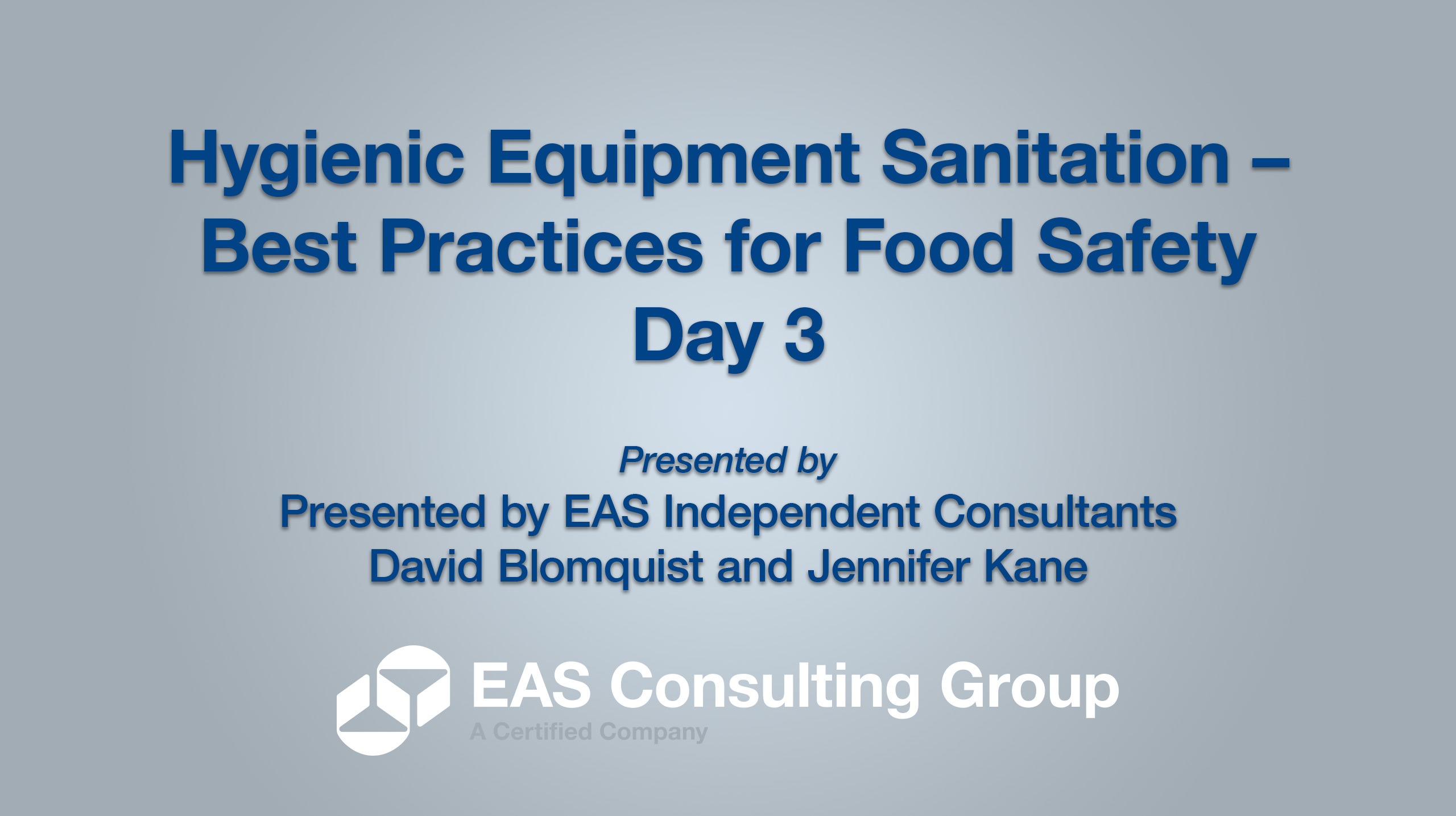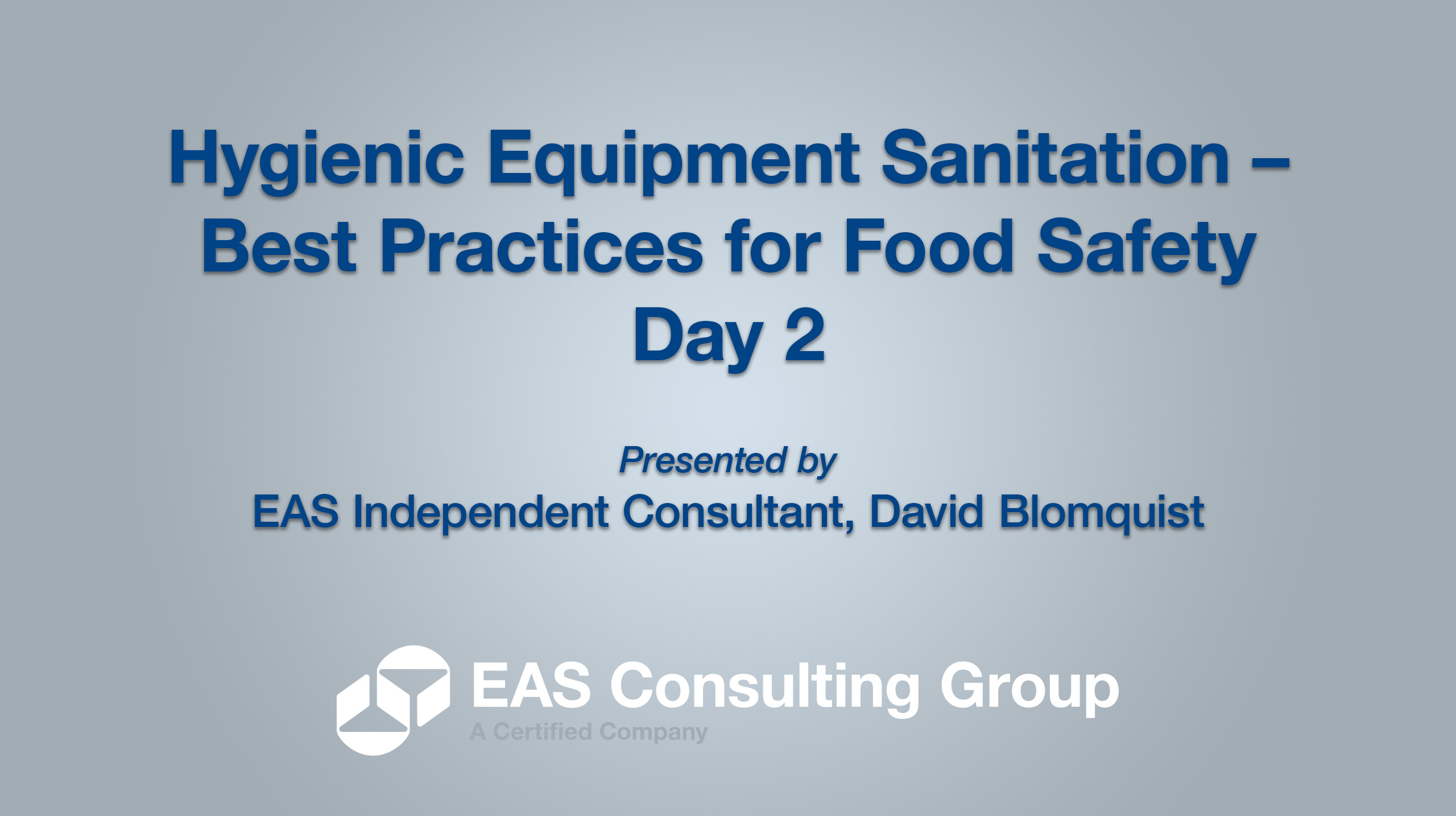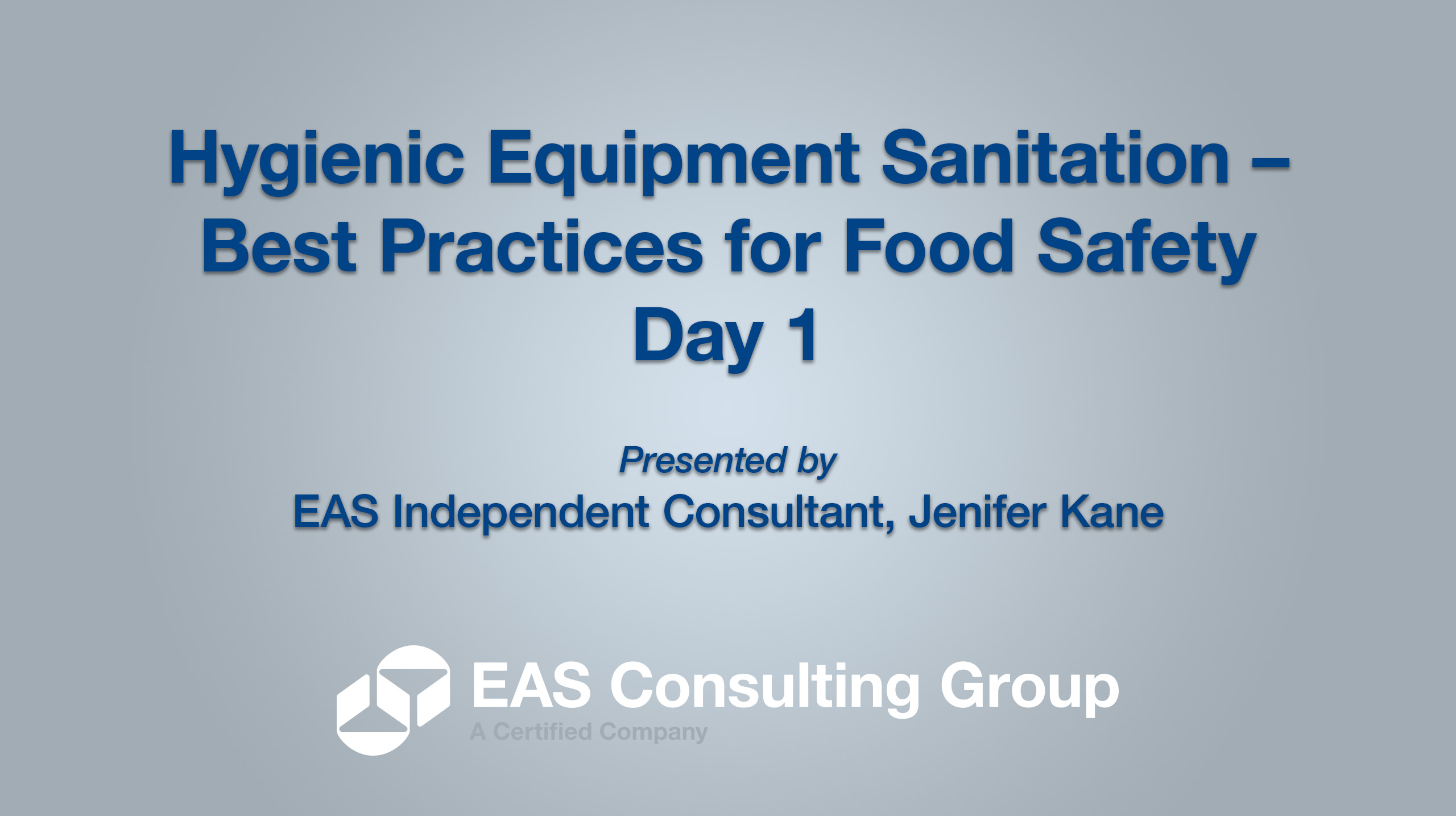Session 1
Introduction – Why is this important? (includes Case Studies, Recent Recalls, Lawsuits Impacting the Food Industry – Lessons Learned)
Regulatory Expectations: FDA Preventive Control’s Sanitation Requirements
- Allergens
- Microbiology and pathogens
- Hygienic zoning
- Environmental monitoring program
Session 2
Hygienic Design, Installation and Maintenance of Food Processing Equipment Identifying “Harborage Traps” and Correcting
Sanitation Technology & Tools
- Chemistry of Cleaning Different “Soils”
- Chemistry of Sanitation on Different Surfaces and for Different Bacteria
- Wet Cleaning Systems – Effective Use of CIP & COP Systems
- Dry Cleaning Systems – Effective Use of Air, Vacuum, CO2, 7 steps of dry cleaning, etc.
- Effective Use of Cleaning and Sanitation Data
Session 3
- Allergens
- Pathogens
- Common Physical Hazards
Tools for Validation and Verification of Snack Food Sanitation Programs
- Effective Environmental Monitoring
- ATP Swabbing
- Whole Genome Sequencing – Understanding the Value and Shortcomings
- “Mining” Operational Records
Hygienic Equipment Sanitation – Best Practices for Food Safety – Short Course
$250.00
This short course offers practical information on best practices, “real-world” examples and tips on how to enhance daily operations related to improving existing food safety and quality programs. The three-session training will focus on criteria for selecting, installing and maintaining processing equipment and utensils, how to effectively clean processing equipment and the processing environment, identification of employee practices that negatively impact operational food safety as well as how to upgrade existing food safety programs using industry “best practices” for compliance with FDA Food Safety Modernization Act (FSMA) regulations.
Your instructors will utilize extensive experience in auditing and troubleshooting wet and dry food processing environments to deliver real-world advice on upgrading food safety programs through the use of common sense, mining production records and associated data, the use of cutting-edge technology and tools, microbiological indicators, environmental testing programs and hazard detection systems. You will learn how to identify food safety “alarm bells” and how to silence them through the establishment of early warning systems alerting quality assurance, food safety and management before significant problems emerge.
This Short Course is perfect for
- food safety, food quality, facility maintenance, equipment maintenance and operational supervisors and directors at the manufacturing and corporate levels
- manufacturing facility plant and corporate management directly or indirectly responsible for food safety and quality
- manufacturing facility and corporate management responsible for purchasing, installing, maintaining, operating, cleaning and sanitizing of food processing equipment
- suppliers providing food processing equipment, cleaning and sanitation systems and equipment integrators services




